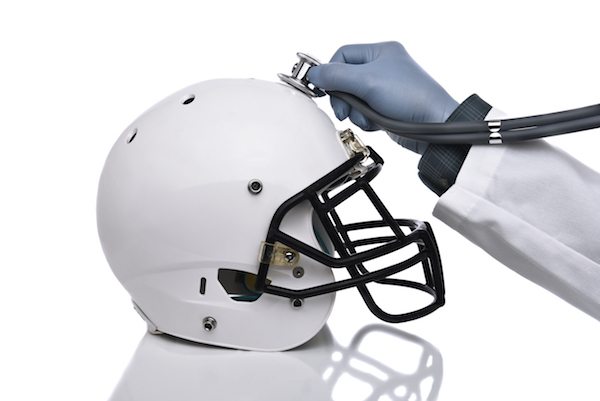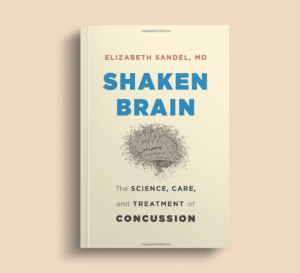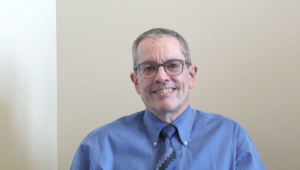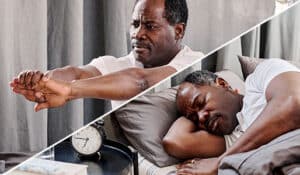Getting Top-Notch Care after a Concussion

I sat down with friend and former colleague, Dr. Richard Delmonico, last December to interview him about his experience assessing and treating people with brain injuries.
In the half hour-long interview, we discussed a variety of topics including the role of neuropsychologists, the use of ImPACT testing, post-traumatic stress diagnosis, and what habits and activities help those with mild brain injuries or concussions recover more quickly. You can watch the complete interview here.
Dr. Delmonico is the Chief of Neuropsychology at the Kaiser Foundation Rehabilitation Center in Vallejo, California and Co-director of the Youth Sports Concussion Program at Kaiser Permanente’s Trauma Center in Vacaville, California. In the interview, he delved into how he and his colleagues set up the clinic and how they treat the young people they see who have sustained concussions. Because the topic of sports concussions in youth is so important and controversial right now, what he has to say on the topic is very enlightening.
Here is a brief summary:
Some concussion clinics or centers treating concussion or more severe brain injuries are led by physicians, Dr. Delmonico explains, and some are led by neuropsychologists or healthcare providers. Dr. Delmonico and his colleagues decided that the best model for their clinic was to have both physicians and neuropsychologists involved, and triage patients into two tracks, depending on the severity of injury and progress of recovery.
Track One treats uncomplicated sports concussions. Dr. Delmonico gives the example of a youth playing football on a Friday night who sustains an injury and is taken to the ER, where he’s diagnosed with a sports concussion. The pediatrician or sports medicine doctor follows up with him on the phone and schedules an initial visit for early the following week.
Testing at the clinic follows. This includes balance testing, an evaluation with the ImPACT (Immediate Post-Concussion Assessment and Cognitive Test), the modified SCAT (Standardized Concussion Assessment Tool), and a visual-ocular-motor exam. The results of this testing helps the clinicians assess severity, predict a recovery trajectory and develop a treatment plan.
The plan may involve vestibular treatment with a physical therapist, psychology or psychiatry, or other interventions. These concussed youths are typically taken out of school and out of sports for a period of days or weeks and are then gradually returned to school and play.
Track Two treats youths whose symptoms haven’t resolved quickly within the first few weeks of injury. These are athletes with more complicated concussions.
These youth athletes meet in a group appointment with a sports concussion physician and a neuropsychologist and go through more testing, including another ImPACT evaluation and an in-depth assessment of the history of the concussion and previous concussions, and their performance at school.
Each time they visit the clinic, the patients complete a checklist detailing the symptoms they’re experiencing, to keep track of recovery and for decisions about treatment. Telephone calls or video visits occur weekly or every other week so the clinicians can monitor progress. They have one more group appointment and another ImPACT evaluation before they’re cleared to return to sports.
Dr. Delmonico notes that patients who have a longer extended recovery period typically did not sustain a concussion through sports but through some other trauma, such as a car accident, bad fall, or other activity. People who have had concussions in the past may experience a longer recovery time.
Dr. Delmonico has much more to say on the value of certain treatments in recovery and how important initial rest and the reduction of screen time (i.e., phone, TV, and computer time) are to promoting good outcomes.
Don’t forget to watch the whole interview here.
You Might Also Like
Comprehensive Care of Concussions
Dr. Richard Delmonico, a neuropsychologist, outlines the approaches to triage and treatment in a concussion clinic in the Northern California Kaiser Permanente health system. He also discusses the uses of neuropsychological testing to help with diagnosis and management of people with concussions and other brain injuries.
3 Things to Do to Allow Your Brain to Recover More Quickly After Brain Injury
After a concussion, people need good sleep patterns, and they also need to resume activity and exercise to aid recovery. Activities with concussion risk should be avoided, however.
Keep up to date
Get updates on the latest in concussion, brain health, and science-related tools from Dr. Elizabeth Sandel, M.D.
By clicking SIGN UP, you agree to receive emails from Dr. Sandel and agree to our terms of use and privacy policy.
Get the book!



